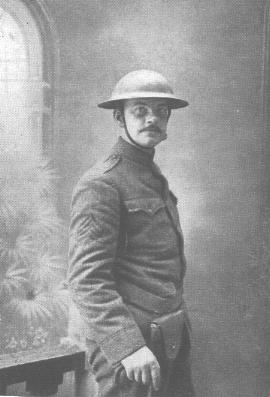There's always additional pressure on us self-appointed opinionators when the end of the year marks the end of a decade as well. That means we've got to come up with something half-way credible to say about a ten-year span that may actually offer damn little in the way of any unifying thread. That's not the case this time, however. Thanks to one Umar Farouk Abdulmutallab, the lad from Lagos who decided to give "blow it out your shorts!" a whole new meaning by trying to trigger an explosion in his underdrawers (hmm...) on a flight to Detroit on Christmas day, we have a decade that's almost bookended by terrorism, or at least the threat thereof.
I and the Missus's son and heir remarked that people who were still so shocked by such deeds as Umar's didn't seem to realize that we were actually up against an "ideology," instead of a nation or, to some extent, even a formal "organization," amenable to playing by any sort of rules as we might construe them. This observation struck me as not only insightful but ironic as well, given that until the Nixon administration's shift to détente with the Soviets and more open relations with China in the early 1970s, our Cold War foreign policy had been premised in large part on the idea that we were up against an ideology powerful enough to unify disparate nations under the common cause of destroying our way of life. Under Tricky Dick and Hank the K over at the State Department, we began reorienting our diplomatic pitch to tap into the needs, wants, and worries of the Russians and Chinese as national entities rather than agents/slaves of a global belief system. Beyond that, we actually began to acknowledge the differences and tensions between them and play footsy with first one and then the other in order to keep them off balance. For my money, the Nixonistas are due much of the credit for the string of events leading to the collapse of the Soviet Union and the demolition of the Berlin Wall because opening the U.S.S.R. up to western ways and glittery gee-gaws made standing in a line all day just to buy beets seem like an even bigger bummer for a lot of regular old Russkies. Having grown up in the age of the fallout shelter and sweated out the Cuban Missile Crisis, I'm not harboring a lot of warm and fuzzy feelings about the Cold War, but there was at least something to be said for believing, even incorrectly, as it turned out, that you at least knew who and what your enemies were. For the better part of the last generation, we have been forced to contend with enemies who, though more diverse than most imagine, are, in fact, driven by a strikingly consistent ideological fervor, but that pays no attention to national boundaries and acknowledges no national obligations. Not only is it therefore largely beyond the reach of national and international law and sanction, but it doesn't particularly give a damn about our massive missile stockpiles or our amazing stealth bombers. Its face (or mouth) might be an ayatollah or mullah, but its most fearsome feature is the legion of foot soldiers who are willing to do anything to themselves and others that they believe is essential to furthering their cause up to and including making Jihad in their Jockeys.
 Although,incredibly enough, ABC news has sniffed out Ol' Umar's undies, so to speak , I must note that, even more incredibly under the circumstances, they seem remarkably devoid of skid marks.
Although,incredibly enough, ABC news has sniffed out Ol' Umar's undies, so to speak , I must note that, even more incredibly under the circumstances, they seem remarkably devoid of skid marks.
Our aforementioned offspring and I also shared a hearty guffaw when Homeland Security Secretary Janet Napolitano (Should we really have somebody in this job whose name reminds everybody of a pizza joint?) declared that Umar's botched self-detonation was evidence that the "system worked." Yeah, right, provided the would-be suicide bomber is a putz and he has some fellow passengers bold and burly enough to put a chokehold on him when he can't manage to ignite the payload in his pants. After this incident, aspiring airline terrorists should at least be on notice that the days of seizing a jumbo jet with a nail file are probably over. We understand now that you lunatics are not just trying to take over the plane for a long weekend in Havana. Don't be thinking that ol' Umar scorched his privates for naught, however. The apprehension we felt and sensed among our fellow fliers and airline and security personnel on the way home on Monday reminded me of an op-ed piece that I wrote for the Hotlanta paper on September 12, 2001, pointing out that for all our military might, there'd been precious little time since FDR's vaunted "four freedoms" speech in 1941 when we could really claim that we were enjoying freedom from fear. Now, more than eight years and a pair of badly singed drawers later, I'm even more skeptical that we are likely ever to know that feeling again.
*The Ol' Bloviator knows full well that he will be accused of stealing this title from the N.Y. Post, but take it from me and Jerry Lee, there is a world of difference between "balls of fire" and "balls on fire."
